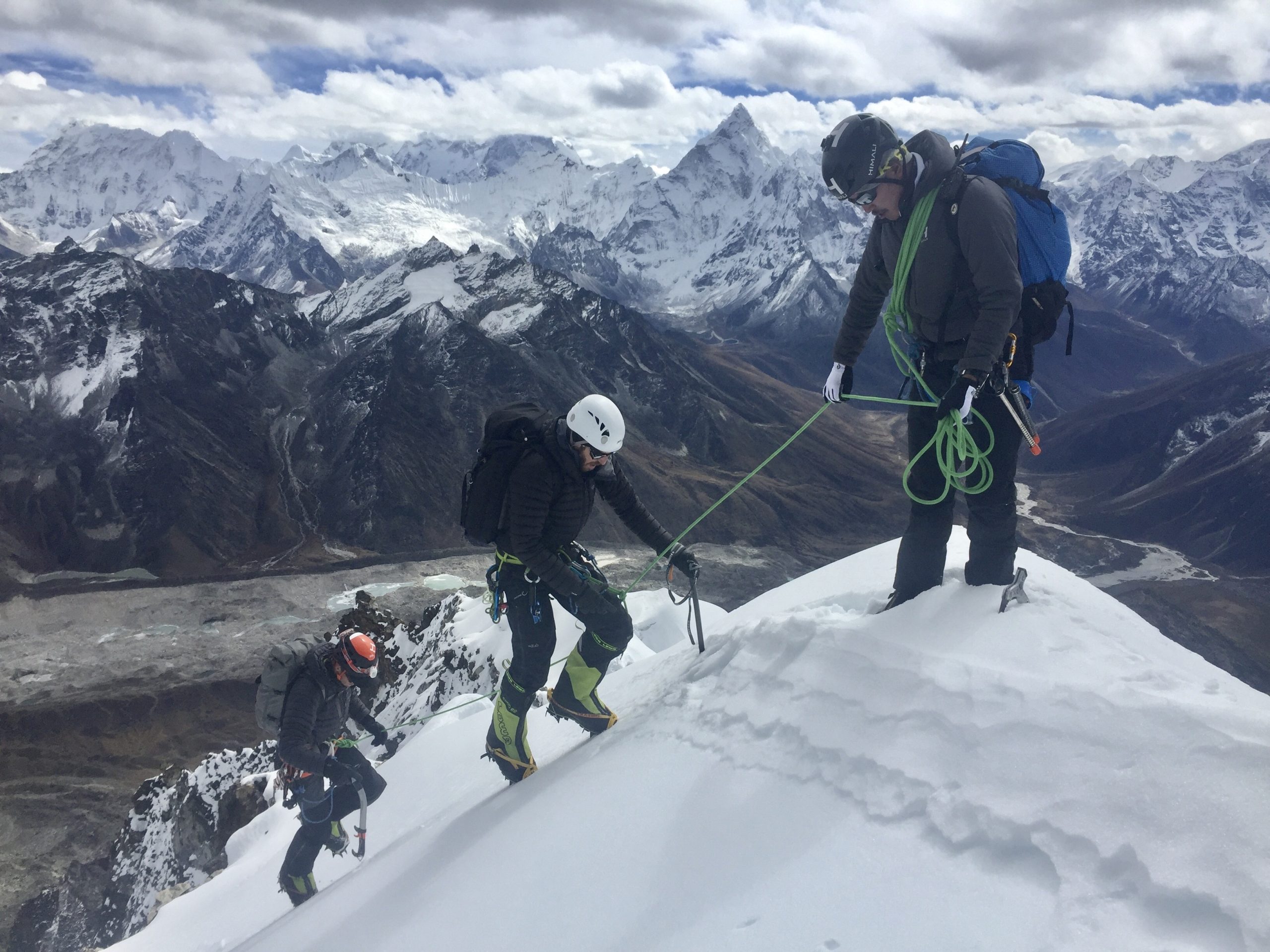
Comprehensive Mountaineering Training Program for Aspiring High-Altitude Climbers
Welcome to a transformative mountaineering training program designed to safely guide you from novice climber to a seasoned alpinist capable of summiting the world’s highest peaks.
Our program is tailored for those aspiring to conquer Everest, K2, or all 14 of the 8000-meter giants peaks. Through a structured, step-by-step approach, we aim to equip you with the technical, physical, and leadership skills necessary for success in the high-altitude realm.
Step 1: Foundational Training on a 6000mPeak:
Objective: Build foundational skills in a high-altitude environment.
Location: A selected 6000m peak known for its challenging, yet manageable terrain.
Duration: 2-3 weeks.
Key Skills Developed:
Acclimatization Techniques:
Learn how to gradually acclimate to high altitudes, a critical skill for future climbs.
Basic Mountaineering Skills:
Develop proficiency in essential techniques, including crampon use, ice axe arrest, rope management, and glacier travel.
Team Dynamics:
Understand the importance of communication and teamwork, key components for success in any high-altitude expedition.
Training Structure:
Under the guidance of an IFMGA Mountain Guide and support assistant guides, you’ll undergo daily climbing exercises, route finding, and safety drills. The small group size (maximum 5 participants) ensures personalized attention and tailored feedback.
Step 2: Intermediate Training on a 7000m Peak:
Objective: Transition from a high-altitude beginner to an experienced climber capable of tackling more complex terrains.
Location:
A carefully chosen 7000m peak that offers a step up in difficulty.
Duration: 3-4 weeks.
Key Skills Developed:
Advanced Climbing Techniques:
Master techniques for more technical ascents, including fixed line ascents, crevasse rescue, and mixed climbing on rock and ice.
Altitude Adaptation:
Experience and learn to manage the physical and mental challenges of climbing at higher altitudes, including proper use of supplementary oxygen if necessary.
Decision Making and Leadership:
Start taking on more responsibility within the group, including route selection, risk assessment, and emergency response.
Training Structure:
The climb will involve higher elevations and more complex terrain, testing your abilities and pushing your limits. With the support of your guide team, you’ll engage in increasingly challenging scenarios that build your confidence and competence.
Step 3: Advanced Training on an 8000m Peak:
Objective:
Prepare for the ultimate challenge of summiting Everest, K2, or another 8000m peak.
Location:
Choose between Mount Manaslu or Cho Oyu, both ideal training grounds for aspiring Everest climbers.
Duration: 4-6 weeks.
Key Skills Developed:
High-Altitude Climbing Proficiency:
Hone your ability to move efficiently at extreme altitudes, manage energy reserves, and make critical decisions under pressure.
Expedition Leadership:
Take on a leadership role in planning and executing the climb, with the support of the IFMGA Mountain Guide and assistant guides.
Summit Success Strategy:
Learn the specifics of summit pushes, including timing, pace, and dealing with unpredictable weather and terrain.
Training Structure:
This phase will simulate the conditions and challenges of an Everest summit attempt. With limited participants, each climber will receive dedicated guidance, ensuring you’re fully prepared for the final step in your mountaineering journey.
FINAL OUTCOME:
Upon completion of this rigorous training program, you will not only have summited several significant peaks but will also have acquired the necessary skills and experience to safely and confidently tackle Everest, K2, or any of the other 8000m peaks. Beyond the physical achievements, you’ll emerge as a technically proficient climber with strong leadership abilities, ready to lead future expeditions and assist others in their high-altitude pursuits.
Join us on this journey, and let’s make your dream of standing on the world’s highest summits a reality.